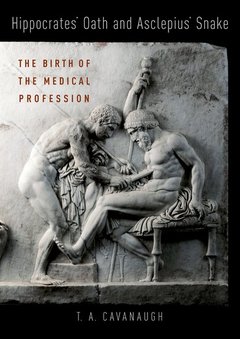Description
Hippocrates' Oath and Asclepius' Snake
The Birth of the Medical Profession
Author: Cavanaugh T.A.
Language: English
Subject for Hippocrates' Oath and Asclepius' Snake:
Publication date: 12-2017
192 p. · 18x12.7 cm · Hardback
192 p. · 18x12.7 cm · Hardback
Description
/li>Biography
/li>
T. A. Cavanaugh's Hippocrates' Oath and Asclepius' Snake: The Birth of the Medical Profession articulates the Oath as establishing the medical profession's unique internal medical ethic - in its most basic and least controvertible form, this ethic mandates that physicians help and not harm the sick. Relying on Greek myth, drama, and medical experience (e.g., homeopathy), the book shows how this medical ethic arose from reflection on the most vexing medical-ethical problem -- injury caused by a physician -- and argues that deliberate iatrogenic harm, especially the harm of a doctor choosing to kill (physician assisted suicide, euthanasia, abortion, and involvement in capital punishment), amounts to an abandonment of medicine as an exclusively therapeutic profession. The book argues that medicine as a profession necessarily involves stating before others what one stands for: the good one seeks and the bad one seeks to avoid on behalf of the sick, and rejects the view that medicine is purely a technique lacking its own unique internal ethic. It concludes noting that medical promising (as found in the White Coat Ceremony through which U. S. medical students matriculate) implicates medical autonomy which in turn merits respect, including honoring professional conscientious objections.
T. A. Cavanaugh is Professor of Philosophy at the University of San Francisco where he regularly teaches medical ethics. He writes on medical ethics, double-effect reasoning, action theory, and the history of ethics.
© 2024 LAVOISIER S.A.S.




